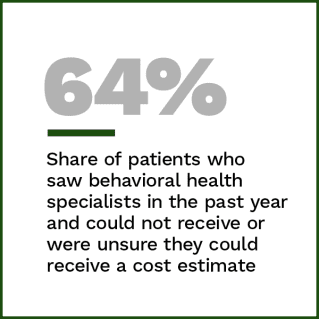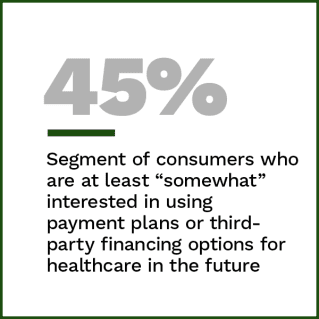Digital, Flexible Payment Plans Key to Expanded Behavioral Healthcare Access – PYMNTS.com

Telemedicine has reshaped the mental health landscape as millions of Americans now consult therapists and psychiatrists online rather than in physical offices. The numbers of people in need of mental health treatment have swelled during the pandemic, with nearly one-third of United States adults saying they have experienced symptoms of anxiety or depression.
In The Digital Care Connection: How Telehealth And Digital Payments Can Expand Mental Healthcare Access, PYMNTS analyzed the survey results of 3,546 U.S. consumers to learn about how they are accessing mental healthcare services and how they are paying for them when they do.
The Playbook revealed that three in five patients who interacted with a behavioral health practitioner in the last year did so digitally — a share that significantly outpaces the shares of patients digitally accessing any other type of healthcare. Telehealth technologies have not removed all barriers to care, though: Financing remains a vital issue for some U.S. patients, especially the uninsured.
More key findings from the study include:

• Even with health insurance, healthcare costs can be high. Even with health insurance — which PYMNTS finds 90% of patients have — out-of-pocket insurance costs often come to an average of $1,148 annually. Many consumers are interested in financing to help defray these costs.
• It can be challenging or impossible to get a clear projection of costs before treatment. A clear projection of costs before treatment would greatly benefit patients deciding if they can afford mental health services, but such estimates are uncommon. PYMNTS’ research finds that just 36% of mental health patients could get an accurate cost estimate for their treatments before receiving services.
 • Consumers are increasingly interested in help with paying for out-of-pocket medical costs. Last year, 26 million Americans used a payment plan or third-party financing to pay a medical bill. PYMNTS found that 45% of consumers are interested in payment plans or third-party financing to make paying these medical costs more affordable.
• Consumers are increasingly interested in help with paying for out-of-pocket medical costs. Last year, 26 million Americans used a payment plan or third-party financing to pay a medical bill. PYMNTS found that 45% of consumers are interested in payment plans or third-party financing to make paying these medical costs more affordable.
• Patients often aren’t fully aware of payment options, but are eager to take advantage of them when they learn they have financing options. PYMNTS’ research finds that of the 31% of patients who were aware that their providers offered these financing solutions, more than half used them.
Flexible payment options can potentially make healthcare — including telehealth treatments and behavioral healthcare — more affordable and accessible for patients. This accessibility, combined with increased transparency on the cost of care and the use of digital innovations in more facets of the healthcare process, can help position patients to connect with specialists and get the treatments they need.
To learn more about how flexible payment options have the potential to advance the accessibility of telehealth treatments for behavioral health, download the report.



